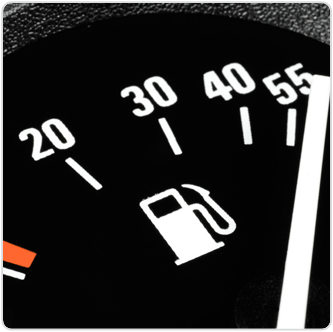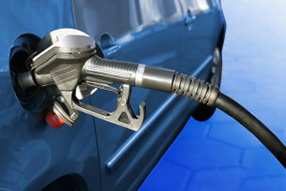Fuel subsidy removals in numerous African governments have raised debates
and upheaval in the last few years. Sky-rocketing fuel prices are, as a result,
affecting the lower and middle-class populations. Consumers are subject to
higher-priced fuel products used for cooking, heating, lighting, and
transportation.

Yet these cuts have been made for the benefit of the affected, as subsidies
are often regressive. According to
a recent study by the
International Monetary Fund (IMF), fuel subsidies are both inefficient and
biased towards those who consume fuel the most. The study shows that the top
20% of households benefit six times more from fuel subsidies than the bottom
20%.
In order to counteract the rising living costs of the poor, some countries
have implemented compensation programs to support those most affected. Gabon
and Mozambique have both offered conditional cash transfers to those most in
need. Ghana increased the number of public-transport buses. Namibia offers food
distribution programs for the poor. Nigeria created youth and women’s
employment programs. Guinea lowered their health care costs. The IMF stresses
that these measures to protect the most vulnerable are essential to the
reforms.

Zambia’s president, Michael Sata, announced their fuel subsidy removal last
month, stating that it will open up funds for job creation and the development
of infrastructures, such as schools, universities, and hospitals.
Ghana has completely removed their subsidy on petrol, gas oil, and LPG
(liquefied petroleum gas) in hopes to help restore their fiscal stability after
a huge 2012 budget deficit. The consequence is higher fuel prices; Ghanaians
will see an immediate 3 percent increase in petrol and LPG, and a 2 percent
increase in diesel fuel.
Most recently, Egypt has launched their first phase of plans to cut their
fuel subsidy. Since their economy took a downturn after political turmoil in
2011, they are taking measures to secure a loan of $4.8 billion from the IMF,
which is only possible with a reform to their energy subsidies. Phase one is to
distribute petrol from depots to gas stations using smart cards. The Egyptian
General Petroleum Company (EGPC) hopes this will reduce fuel theft as subsidies
will only be applied at the retail stage; fewer opportunities will be left for
smugglers who siphon off one fifth of subsidised fuel to sell at profit.
With increasing energy costs, Africans affected by these subsidies must
search for methods to reduce fuel consumption. The appropriate support from
government and decrease in fuel theft will hopefully lead to more stable
economies across the continent.
 Yet these cuts have been made for the benefit of the affected, as subsidies
are often regressive. According to a recent study by the
International Monetary Fund (IMF), fuel subsidies are both inefficient and
biased towards those who consume fuel the most. The study shows that the top
20% of households benefit six times more from fuel subsidies than the bottom
20%.
In order to counteract the rising living costs of the poor, some countries
have implemented compensation programs to support those most affected. Gabon
and Mozambique have both offered conditional cash transfers to those most in
need. Ghana increased the number of public-transport buses. Namibia offers food
distribution programs for the poor. Nigeria created youth and women’s
employment programs. Guinea lowered their health care costs. The IMF stresses
that these measures to protect the most vulnerable are essential to the
reforms.
Yet these cuts have been made for the benefit of the affected, as subsidies
are often regressive. According to a recent study by the
International Monetary Fund (IMF), fuel subsidies are both inefficient and
biased towards those who consume fuel the most. The study shows that the top
20% of households benefit six times more from fuel subsidies than the bottom
20%.
In order to counteract the rising living costs of the poor, some countries
have implemented compensation programs to support those most affected. Gabon
and Mozambique have both offered conditional cash transfers to those most in
need. Ghana increased the number of public-transport buses. Namibia offers food
distribution programs for the poor. Nigeria created youth and women’s
employment programs. Guinea lowered their health care costs. The IMF stresses
that these measures to protect the most vulnerable are essential to the
reforms.
 Zambia’s president, Michael Sata, announced their fuel subsidy removal last
month, stating that it will open up funds for job creation and the development
of infrastructures, such as schools, universities, and hospitals.
Ghana has completely removed their subsidy on petrol, gas oil, and LPG
(liquefied petroleum gas) in hopes to help restore their fiscal stability after
a huge 2012 budget deficit. The consequence is higher fuel prices; Ghanaians
will see an immediate 3 percent increase in petrol and LPG, and a 2 percent
increase in diesel fuel.
Most recently, Egypt has launched their first phase of plans to cut their
fuel subsidy. Since their economy took a downturn after political turmoil in
2011, they are taking measures to secure a loan of $4.8 billion from the IMF,
which is only possible with a reform to their energy subsidies. Phase one is to
distribute petrol from depots to gas stations using smart cards. The Egyptian
General Petroleum Company (EGPC) hopes this will reduce fuel theft as subsidies
will only be applied at the retail stage; fewer opportunities will be left for
smugglers who siphon off one fifth of subsidised fuel to sell at profit.
With increasing energy costs, Africans affected by these subsidies must
search for methods to reduce fuel consumption. The appropriate support from
government and decrease in fuel theft will hopefully lead to more stable
economies across the continent.
Zambia’s president, Michael Sata, announced their fuel subsidy removal last
month, stating that it will open up funds for job creation and the development
of infrastructures, such as schools, universities, and hospitals.
Ghana has completely removed their subsidy on petrol, gas oil, and LPG
(liquefied petroleum gas) in hopes to help restore their fiscal stability after
a huge 2012 budget deficit. The consequence is higher fuel prices; Ghanaians
will see an immediate 3 percent increase in petrol and LPG, and a 2 percent
increase in diesel fuel.
Most recently, Egypt has launched their first phase of plans to cut their
fuel subsidy. Since their economy took a downturn after political turmoil in
2011, they are taking measures to secure a loan of $4.8 billion from the IMF,
which is only possible with a reform to their energy subsidies. Phase one is to
distribute petrol from depots to gas stations using smart cards. The Egyptian
General Petroleum Company (EGPC) hopes this will reduce fuel theft as subsidies
will only be applied at the retail stage; fewer opportunities will be left for
smugglers who siphon off one fifth of subsidised fuel to sell at profit.
With increasing energy costs, Africans affected by these subsidies must
search for methods to reduce fuel consumption. The appropriate support from
government and decrease in fuel theft will hopefully lead to more stable
economies across the continent. 